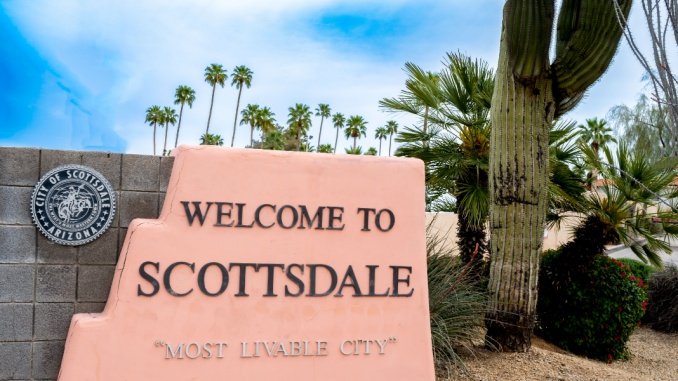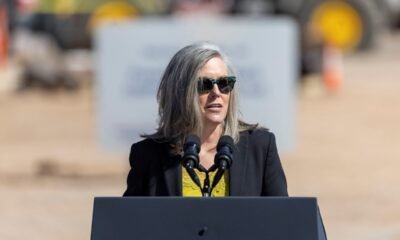Business
Scottsdale’s Sales Tax Hike Sparks Fresh Legal Battle with Goldwater Institute

By Matthew Holloway |
Scottsdale is preparing to approve a significant $2.2 billion budget while simultaneously facing a lawsuit from the Goldwater Institute regarding its newly implemented sales tax increase. The city agreed to allocate up to $90,000 in taxpayer funds to the law firm Osborne Maledon for legal defense.
In June 2024, the Goldwater Institute challenged a recently approved 0.15% sales tax, introduced as a “replacement tax” for an expired 0.2% Land Acquisition Tax. The legal battle resulted in a victory for Goldwater, compelling Scottsdale officials to acknowledge that the new tax constituted a raise rather than a decrease. According to Arizona law, any tax increase requires endorsement from at least 60 percent of voters, which Scottsdale failed to achieve in the 2024 elections.
On June 3, the Goldwater Institute filed a lawsuit against the city, denouncing the tax as unconstitutional. Their press release asserted that supermajority rules are essential for protecting minority voices and preventing taxpayer exploitation. “Just like any responsible household, city and state officials should review their spending before seeking additional funds,” the release stated.
Scott Day Freeman from Goldwater emphasized that the city is bypassing state constitutional mandates, necessitating further legal action. City Attorney Sherry Scott warned the council that failing to defend against the suit could lead to financial implications of $25 million annually for the next three decades. The law firm representing the city charges about $912 per hour to counter the institute’s request for an injunction and a declaration deeming the tax unenforceable.
Freeman clarified that their objective is simply to confirm the unlawfulness of the tax and seek an injunction, not to pursue refunds or damages. Scottsdale spokesman Kelly Corsette expressed confidence that the ballot item complies with both the Arizona Constitution and relevant election laws, arguing that the 60% voter approval stipulation pertains to statewide measures rather than local initiatives.
The Goldwater Institute contends that recent constitutional amendments strengthen protections by mandating that any taxpayer initiatives require at least 60 percent approval to be enacted—an obligation they believe applies to both statewide and local ballot initiatives.
Matthew Holloway is a senior reporter for Arizona News. Follow him on X for his latest stories, or email tips to Matthew@azfreenews.com.


















